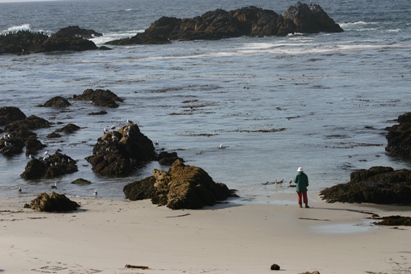This past weekend I had coffee with two local friends that I met this past year. We were drawn together based on our common interests in conservative principles and constitutional government, two things that Republicans are supposed to espouse, but have conveniently forgotten at various times over the years. The good thing is that since we have a canon by which to measure their performance, we know when they are straying (unfortunately, since Democrats are largely moral relativists and think the Constitution is a “living breathing” document aside from the amendment process, it is hard to keep tabs on when or if they are straying from a seemingly amorphous set of principles). This blog is not, in particular, about the meanderings of the Republican Party or the vagaries of the Democratic Party, but addresses a key question my friends proposed during our discussion yesterday. The question was regarding the path I took to become a conservative, having previously been a liberal and a registered Democrat. I wasn’t able to answer the question definitively at the time, but as I reflected more on the question, I began to see a definite pattern. Though there wasn’t a particular “moment” of clarity, what occurred to me was that I needed to begin to live my values, making my actions consonant with my beliefs to the best of my ability.
You see, growing up black in the south (Richmond, VA), what I think is fairly common in any black community is that virtually everyone grows up as a Baptist Christian. Yes, you do have to make the trek to give your life to Christ at some point when the pastor is making his altar call pitch accompanied by soul-stirring organ music, and you’re feeling particularly spiritual. But the question is what happens after this conversion experience? From my own experience, very little was asked of me after I accepted Christ. There was little in the way of demands on me in terms of changing my life, other than not doing the obvious things such as getting drunk, doing drugs, or getting in trouble with the law. So I was, in a sense, blissfully unaware that there was more to being a Christian other than just being a good person. On Sunday, you showed up and were spiritual, and what you did the other days was pretty much your own business. I think I always knew there was something more, but it wasn’t until my 30s that I began to reflect on my life and the results I was getting in my life. The results weren’t particularly good, especially with my relationships, and I realized this was largely because I professed a set of values, but my behavior was wholly inconsistent with those professed values. I can’t say at what point any particular person comes to this realization, but I think we all do at some point in life, if we’re the least bit self-reflective.
The turning point for me was realizing that I was not living my values, and I made the decision to earnestly set out to begin living those values. It was realizing that there was a price to pay for being a Christian, by not being conformed to this world. And it was this that caused a realignment of my values away from being liberal and towards being conservative. As I have spoken on in many previous blogs, liberal (or progressive) philosophy today doesn’t espouse objective moral values, believing the values of today have simply evolved over tens of thousands of years, and were not set forth by a creator. And of course, the Bible is not the inerrant word of God, but a book solely written by men who interpreted events the best they could out of the ignorance of their day. Black Christians do not generally embrace this naturalistic, materialistic view of the world fully, but many have adopted elements such as the acceptance of macro evolution, and to some degree the moral relativism of the age, because they are rarely challenged on the cognitive dissonance of accepting these views while also accepting Christianity. In my view, it is the lack of intellect in preaching and deep reflection on the Christian life that causes blacks to profess their belief in God while not living out our beliefs. On social issues, however, such as gay marriage and abortion, blacks are highly consonant in believing against.
To bring this post home, what I’m arguing is that while the vast majority of blacks hold largely conservative positions on social issues, this clearly does not translate to high percentages of conservative values and principles displayed in practice, particularly in urban areas. I can’t say that I have a decisive remedy for this, but I think that while some of us may come to the realization, as I did, that conservative principles best align with the Christian faith, others may need further education to see this connection so they can make their own evaluation, which is just as valid if approached from natural law since the basis of conservative values is natural law. Thus, I see a real opportunity for those in the conservative movement to reach out to the black community and particularly black church leaders. I believe this outreach would apply in all ethnic communities, where there tends to be a belief in conservative values, while these communities have difficulty putting them into practice. I honestly believe that ethnic communities are hungry for something different that will uplift and empower their communities.


Comments on this entry are closed.